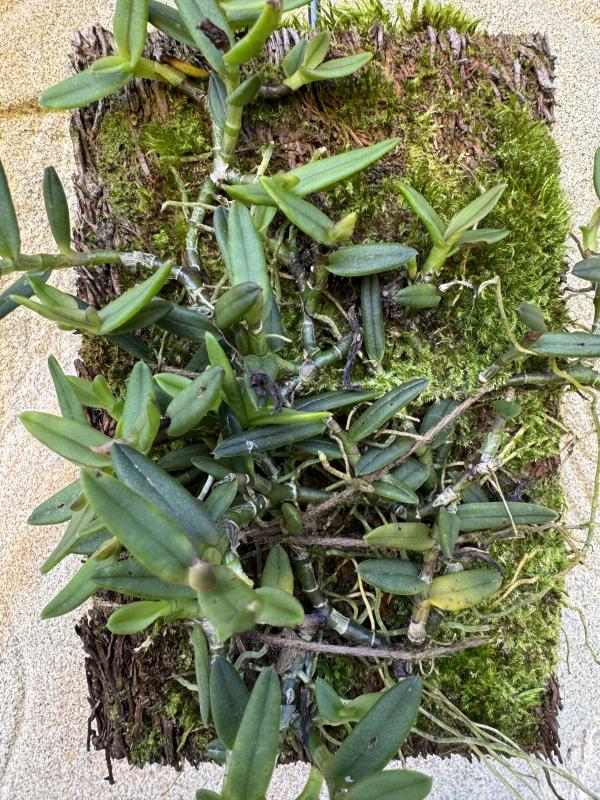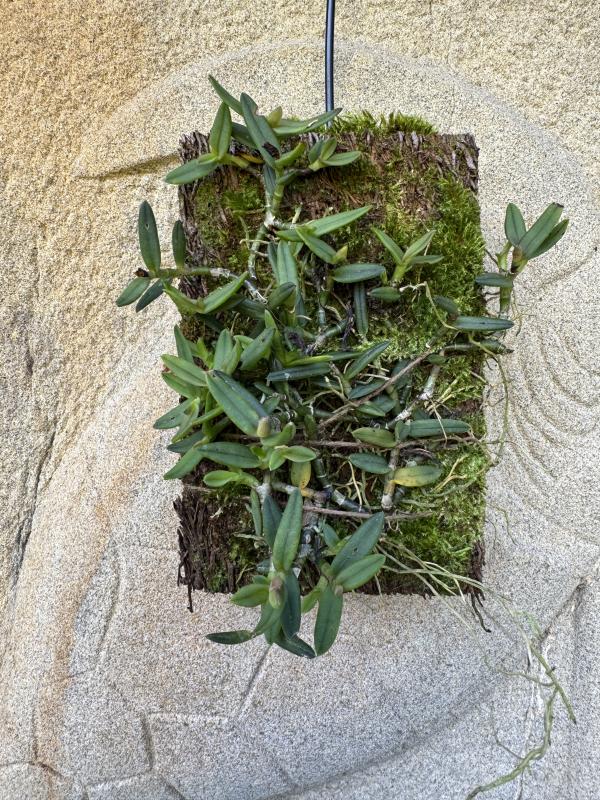


$ 59.00 AUD
Epidendrum porpax
Epidendrum porpax is a beautiful orchid species native to Central and South America. Known for its unique flowers and adaptability, it can thrive in various environments, making it a suitable candidate for cultivation in Australia. You will receive the plant in the picture, growing on a 10cmm x 16cm tree fern tile.
Climate Requirements
This orchid prefers a warm, humid climate, which is typical of many regions in Australia. Ideally, it thrives in temperatures between 20°C to 30°C (68°F to 86°F). During the winter months, it can tolerate slightly cooler temperatures but should not drop below 10°C (50°F).
Light Conditions
Epidendrum porpax enjoys bright, indirect light. A location with filtered sunlight, such as under a shade cloth or near a window with sheer curtains, is ideal. Too much direct sunlight can scorch the leaves, while too little can hinder flowering.
Watering
Regular watering is essential for this orchid. Water when the top inch of the potting medium feels dry. During the growing season (spring and summer), maintain a consistent moisture level, but reduce watering in the fall and winter months. Ensure proper drainage to prevent root rot.
Humidity
Epidendrum porpax thrives in high humidity levels, ideally between 50% and 70%. In drier climates, consider using a humidity tray or a humidifier to maintain moisture in the air around the plant.
Fertilization
Feed the orchid with a balanced, water-soluble fertilizer every 2-4 weeks during the growing season. A fertilizer with a higher phosphorus content can promote flowering. Always dilute the fertilizer to half strength to avoid root burn.
Potting Medium
A well-draining potting mix is crucial for Epidendrum porpax. A blend of bark, sphagnum moss, and perlite works well. This mix provides aeration while retaining some moisture, which is important for healthy root development.
Propagation
This species can be propagated through division. When the plant becomes crowded in its pot, carefully divide the root system and re-pot the sections in fresh potting media.
Pests and Diseases
Keep an eye out for common pests such as aphids, mealybugs, and scale. Regularly inspect the leaves and roots. If pests are detected, treat them with insecticidal soap or neem oil. Ensure good air circulation to prevent fungal diseases.
Care Instructions
Follow these detailed care instructions to keep your Elkhorn Fern thriving:
Mounting
Elkhorn ferns are epiphytic, meaning they naturally grow attached to trees. For best results:
- Mount on wood, cork, or similar materials
- Use sphagnum moss around the roots
- Secure with fishing line or plant-safe wire until established
Watering
Proper watering is crucial:
- Soak the root ball and shield fronds thoroughly when the moss feels dry
- Allow excess water to drain completely
- Reduce watering in winter
- Mist shield fronds occasionally
Light & Positioning
Place your fern where it receives:
- Bright, indirect light
- Protection from direct sun, especially midday
- Good air circulation
Shipping Information
Australia Express Post. Due to quarantine regulations, this plant cannot be posted to the NT, SA, TAS, or WA.

